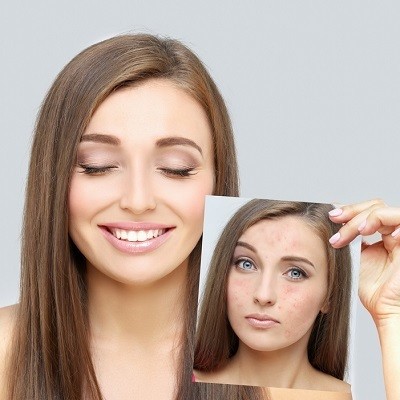Pregnancy is a delicate time in a woman’s life, and any cosmetic treatment or medical procedure requires careful consideration. For many women, the physical changes that occur during pregnancy, such as weight gain, hormonal shifts, and changes in skin elasticity, may result in new scars or the exacerbation of pre-existing ones. This raises an important question: Can scar removal be done during pregnancy?
While it’s understandable to want to address scars during this time, it is essential to approach the topic with caution. In this blog, we’ll explore whether scar removal treatment in Islamabad are safe during pregnancy, what options are available, and the precautions you should take.
Understanding Scar Formation During Pregnancy
Pregnancy can lead to the development of various types of scars, some of which are temporary and others that might be more permanent. Common pregnancy-related scars include:
- Stretch Marks: These occur as the skin stretches rapidly due to the growing baby, especially in areas like the abdomen, thighs, and breasts. Stretch marks are a type of scar resulting from the tearing of the dermis (the skin’s middle layer).
- C-section Scars: Women who undergo a cesarean section may develop surgical scars at the site of the incision.
- Acne Scars: Hormonal fluctuations during pregnancy can trigger acne breakouts, leading to scars.
- Injury Scars: Minor cuts, scrapes, or accidents during pregnancy can result in scars that remain after healing.
While many women may feel self-conscious about these scars, it’s crucial to remember that pregnancy is a temporary phase, and many skin changes will improve or fade post-pregnancy.
Is Scar Removal Safe During Pregnancy?
When it comes to scar removal during pregnancy, safety is the top priority. Most medical professionals and dermatologists recommend avoiding non-essential cosmetic procedures during pregnancy unless absolutely necessary. Here’s why:
1. Hormonal Changes
Pregnancy causes significant hormonal fluctuations, which can make the skin more sensitive, reactive, and prone to irritation. This means that treatments that are effective for scar removal under normal circumstances may not work the same way during pregnancy and may even lead to unwanted side effects, such as increased redness, swelling, or pigmentation.
2. Potential Risks
Certain treatments, especially those involving chemicals, lasers, or injections, may carry risks to the developing baby. While there is no definitive research to suggest that these treatments are categorically unsafe during pregnancy, many practitioners prefer to err on the side of caution. For example, some scar removal procedures involve chemicals that could be absorbed through the skin and potentially affect the fetus.
3. Skin Sensitivity
Pregnant women often experience heightened skin sensitivity due to hormonal changes. This means that procedures like laser treatments, chemical peels, and microneedling could cause excessive irritation or adverse reactions, even if the treatment is generally safe for non-pregnant individuals.
4. Healing and Recovery
The body’s healing capacity changes during pregnancy. Wound healing may take longer or be less efficient than usual, which could delay recovery after a scar removal procedure. Additionally, pregnancy-related changes in circulation and immune function could affect the way the skin heals post-treatment.
Scar Removal Options During Pregnancy
While many scar removal treatments should be avoided during pregnancy, there are some options that are generally considered safer and less invasive. However, it’s essential to consult with a healthcare provider before undergoing any treatment during pregnancy. Below, we’ll explore various treatment options and their suitability during pregnancy:
1. Topical Treatments
Topical treatments, such as creams and gels, are often the safest option for scar management during pregnancy. These products are applied directly to the skin and are typically non-invasive. Some ingredients are considered safe to use during pregnancy, while others should be avoided.
- Silicone Gel Sheets/Gels: Silicone-based products are commonly used to treat scars and are widely regarded as safe for use during pregnancy. These products help to hydrate and flatten scar tissue, promoting smoother skin. They are non-invasive and do not involve exposure to chemicals or lasers.
- Vitamin E and Aloe Vera: Both Vitamin E and aloe vera are natural ingredients that are often used to reduce the appearance of scars. They are generally safe during pregnancy, but it’s important to check the formulation of any topical product to ensure there are no harmful additives.
- Hydrocortisone Cream: For certain types of scars, hydrocortisone cream may be used to reduce inflammation and redness. While low-strength hydrocortisone is usually safe for short-term use during pregnancy, it should only be used under the guidance of a healthcare provider.
- Bio-Oil: This popular scar treatment product contains a blend of plant oils and vitamins, and it is generally considered safe for use during pregnancy. It is commonly used to help reduce the appearance of stretch marks.
2. Laser Treatments
Laser treatments are widely used for scar removal, but they are generally not recommended during pregnancy. The reason for this is that the effects of lasers on a developing fetus have not been sufficiently studied. Some types of lasers, such as fractional CO2 lasers or erbium lasers, can be harsh on the skin, and their effects on pregnancy hormones and skin healing are not fully understood.
Additionally, because pregnancy increases skin sensitivity, laser treatments may cause discomfort or exacerbate skin irritation. It is best to wait until after pregnancy to undergo laser treatments for scar removal.
3. Microneedling
Microneedling is another popular treatment for scar removal that works by promoting collagen production through tiny punctures in the skin. However, because microneedling can cause skin irritation and the use of topical numbing creams (which may contain ingredients not proven safe during pregnancy), it is generally not recommended for pregnant women.
Additionally, the healing process may be slower during pregnancy, which could affect the results of the treatment.
4. Chemical Peels
Chemical peels involve applying a chemical solution to exfoliate the outer layers of the skin. While superficial peels using mild acids may be considered safe for some women, they are generally not recommended during pregnancy due to the risk of chemical absorption into the bloodstream.
Stronger chemical peels, which use harsher acids to target deeper skin layers, should be avoided entirely during pregnancy.
Alternative Approaches to Scar Management During Pregnancy
If you’re pregnant and concerned about scars, it’s best to focus on natural methods and gentle skincare routines. Here are some alternative approaches to consider:
- Hydration: Keeping your skin well-hydrated can improve its elasticity and appearance, helping to prevent the formation of new scars and reducing the visibility of existing ones.
- Gentle Exfoliation: Using mild exfoliating products can help remove dead skin cells and promote skin regeneration, reducing the appearance of scars over time. Avoid harsh scrubs or chemical exfoliants that can irritate the skin.
- Sun Protection: Scars are more likely to darken when exposed to the sun. Applying sunscreen with a high SPF daily will help protect your skin and prevent scars from becoming more noticeable.
When Is It Safe to Consider Scar Removal After Pregnancy?
After giving birth, most women can safely consider more aggressive scar removal treatments, such as laser therapy or microneedling. However, it’s important to wait until your body has fully recovered from childbirth and any hormonal fluctuations have stabilized. This may take a few months, depending on the individual.
Conclusion
Scar removal during pregnancy is generally not recommended due to the potential risks and complications associated with various treatments. However, there are safe, non-invasive options, such as topical treatments with silicone, Vitamin E, or aloe vera, that can help manage and improve the appearance of scars. Always consult with your healthcare provider before undergoing any treatment, and remember that many skin changes and scars improve naturally post-pregnancy. Patience and gentle care during this time can go a long way in supporting your skin’s health and appearance.



